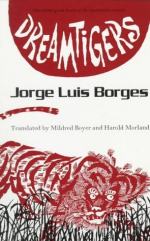|
This section contains 6,336 words (approx. 22 pages at 300 words per page) |

|
SOURCE: “The Mystical Experience in Borges: A Problem of Perception,” in Hispanofila, Vol. 98, No. 2, January, 1990, pp. 71–85.
In the following essay, Giskin explores the role and significance of mythical experience in Borges's work.
A reader of Borges is likely to notice that his work, especially his short stories, is not always easily accessible. This is due not to any deliberate desire for obscurity, but rather his persistent allusion to mythical themes such as the search for self and ultimate knowledge. A journey, metaphorical or actual, frequently ends in epiphany in which a character discovers his true place in the universe.1 The mystical experience in Borges includes four characteristics which are common to all epiphany, as cited by William James in The Varieties of Religious Experience: (1) Ineffability: Mystical union defies expression. It must be directly experienced and perceived, yet cannot be communicated to others. (2) Noetic experience: The mystic feels that...
|
This section contains 6,336 words (approx. 22 pages at 300 words per page) |

|


